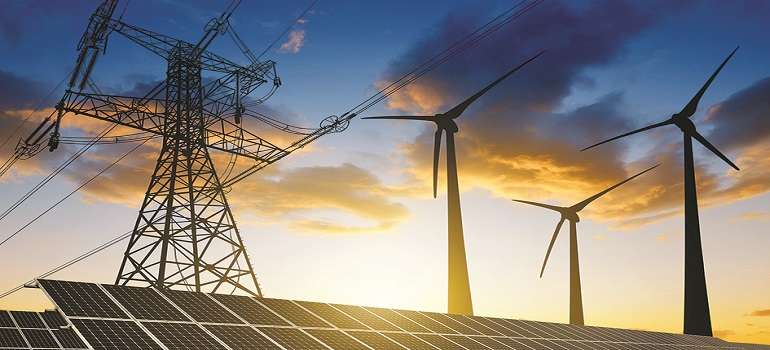MNRE appoints implementing agencies for tenders without or with storage for solar, wind, solar-wind hybrid, round-the-clock (RTC) RE power and more.
The Indian government has set an ambitious target of achieving 500 gigawatts (GW) of renewable energy (RE) capacity by 2030. To achieve this goal, the government has released a detailed plan for inviting bids for RE projects totaling 50 GW for the 2023-24 fiscal year.
According to the Central Electricity Authority, at present country’s total renewable energy capacity, excluding large hydro and nuclear plants, stands at 125 GW as of March 2023. RE accounts for 26.53% of the country’s total installed generation capacity.
The Ministry of New and Renewable Energy (MNRE) has appointed four implementing agencies, including NTPC Ltd and Solar Energy Corporation Of India, to float tenders and open bids for RE projects.
The trajectory released by MNRE specifies tenders for 15 GW each in Q1 and Q2 of FY 2024 and 10 GW each in Q3 and Q4.
Bids can include solar, wind, solar-wind hybrid, round-the-clock (RTC) RE power, and more, with or without storage.
The government plans to add 50 GW of RE capacity annually from FY 2023-24 to FY 2027-28. Union minister for power and renewable energy, RK Singh, has expressed commitment to achieving the 500 GW target by 2030, with the bidding trajectory providing a stimulus for industry investment. The trajectory will also enable power procurers to manage their RE procurement plans effectively and provide a fillip to the RE manufacturing industry in the country.
Given that, India has so far only been able to install a maximum of 15 GW yearly, the choice to add 50 GW of RE capacity annually is substantial and difficult. There are currently 82.62 GW of RE capacity being implemented, and another 40.89 GW is during the tendering process. In addition to the RE capacity created through the government’s rooftop solar and PM-KUSUM programmes, these improvements will be made.
The demand for power in India is increasing at a rate of 6% per year, with a nearly 10% growth in 2017. As one of the seven sectors in the Union Budget 2023, which also includes policies for efficient energy usage across sectors and programmes on green fuel, energy, farming, mobility, buildings, and equipment, Union Finance Minister Nirmala Sitharaman has given “green growth” priority.


